Another Singer Start Hits All the Right Notes
But, sadly, the Royals couldn't finish off the sweep of the doubleheader.
Is it getting kind of boring to talk about good Brady Singer starts? In some ways, I feel like it’s sort of repetitive. After going 7.1 more very good innings against a White Sox team he struggled against some last week, he now has strung together six straight starts with at least six innings or more and he’s done it in seven of his last eight. For all of my issues with Singer last season, it feels like he’s actually turned the corner and now the question becomes how good can he actually be?
I was greatly looking forward to his start yesterday. I mentioned that he struggled against the White Sox and even the struggle wasn’t the worst outing in the world. In fact, I think I’ve written that I may have more encouraged by that start than some of his other solid ones this season. He simply didn’t have his good command in that start and he had allowed four runs through three innings and somehow gutted it out to get through six innings with just those four runs allowed. Those are the kind of starts that separate average pitchers from good pitchers.
If I may take a bit of a sidebar, I have a thought that a legitimate big league pitcher is going to have 10 good starts, 10 average starts and 10 starts where they struggle. Using 2022 standards, in those 10 good starts, a pitcher is going to go, say, 65-75 innings with 10-15 runs allowed. Then in the 10 average starts, they’ll go 55-65 innings with 25-35 runs allowed. The question is what they do in those other 10 starts. A pitcher who can’t hack it might go 40-50 innings and give up 40 runs. But the good ones will find a way to make it work and will get through five with three allowed or six with four allowed. It happens to everyone. But using these numbers, a good pitcher will end up with an ERA around three and a half while a bad pitcher’s ERA will balloon. That is obviously not hard and fast, but it’s sort of a way I think about it.
Anyway, back to Singer. So he had the rough start against the White Sox and then turns around and has to face them in his very next start. And, to be honest, I don’t think he was doing a great job of locating early in this one either. The first pitch of the game as attacked by AJ Pollock and he hit it hard, just right at someone. He gave up a lot of hard contact early actually, culminating in the home run by Josh Harrison in the third inning. I thought he continued to have some issues with leaving pitches over the plate, but it didn’t hurt him much and I think that’s because he had the good movement working again.
The sinker averaged 15 inches of horizontal movement, which is slightly higher than normal and it had 22 inches of drop, which is also more than normal. The result was 14 called strikes on it, which is not new for him, but is still a good number. He’s gotten 20 in a game twice, 19 once and 17 once, but 14 is tied for the fifth-most called strikes on a sinker in a game this season for him. It wasn’t a great number, but it was very good. I know I’ve showed it before, but it’s just so easy to see how a hitter would give up on it and have it end up an obvious strike.
And sometimes it backs up perfectly to just split the corner.
What might have been more interesting is that the White Sox appeared to not be ready for Singer to be throwing his slider in the zone. He had nine called strikes on that pitch, which was the second-most in any game this year and tied for the third-most in his carer. I kind of think that was not by design to be in the zone so much, but it worked for him. Here’s his heat map from yesterday on the slider.
Compare that with the rest of the season.
That’s pretty drastic. It’s easy to see, with that location and the movement he gets, how he’s able to carry a nearly 39 percent whiff rate on the pitch into yesterday’s start. And even though that whiff rate was only 26 percent yesterday afternoon, being in the zone actually caught the White Sox off guard. And even though he did seem to wear down in the eighth inning, he gave another outstanding performance. Now since his return from Omaha, here’s what he’s done:
92.1 IP
84 H
94 K (25.3%)
21 BB (5.6%)
3.31 ERA
That strikeout and walk percentage are intriguing to me. While it’s only half a season’s worth of work, essentially, I went back to 2000 to look at all the pitchers who qualified for the ERA title and had a strikeout rate between 24 and 27 percent and a walk rate between four and seven percent. There were 75 total. That may seem like a lot until I tell you that there have been 1,771 pitchers to quality for the ERA title since 2000. They’re not all stars who have done it, but that’s some pretty impressive company to be keeping for Singer.
You have to start thinking about what the ceiling truly is with him. Just this season, only 16 pitchers have a strikeout rate of 25 percent or higher and only 20 have a walk rate of six percent or lower among qualified pitchers. Only seven are in both categories. Singer doesn’t qualify yet, so it’s maybe unfair to start putting him in that group, but it’s very, very impressive. I think what we’ve learned from him is that he’s unequivocally a big league starting pitcher, which is something I don’t think we knew for certain at the start of the year. My guess is he’s the Opening Day starter next season. The question becomes if he’s a nominal ace, a legitimate number two or more of a number three starter.
I’m not sure where I’m leaning but he has two more big tests in his next two starts. The first is against the Dodgers, who are just better than everyone and have one of the deepest lineups you’ll see. Not only are they good, but they’re balanced as well. So he’s going to have to be better than he was yesterday with command and with the use of his changeup. Then his next turn in the rotation is against the Rays. He dominated them right after the break, but it’s tough to face a team you’ve dominated and dominate again and he also got lit up in Tampa last year, so I’m very interested to see how he handles those two starts.
And of course there was a game as well that went along with his great start and he was able to snag a win because of…surprise…rookies. It’s kind of crazy what is going on with this group right now, but after Singer gave up one run, one of the most unlikely things in the world happened. Lance Lynn, who came into the game with a 4.3 percent walk rate, walked Salvador Perez, who came into the game with a 3.2 percent walk rate. And of course, Vinnie Pasquantino made him pay.
That was assuredly not the most impressive home run you’ll ever see from Pasquantino, but it got the job done. And then in the sixth, Nick Pratto added some insurance.
If you watched the game, you heard Steve Physioc’s bizarre home run call. I don’t know what that was about, but it was weird enough that I had to at least mention it here. I wanted to touch briefly on the Royals offensive approach against Lynn. They appeared to be dead set on taking him the other way, which makes sense. And they did a great job of it.
They really got into more than a couple of them and could have easily had a couple more extra base hits. The balls didn’t fall, but I was impressed with the approach against a guy who may not have the numbers, but is still very tough. I like the way they went about their business in this game.
The nightcap wasn’t nearly as much fun, though we did get this highlight from Pasquantino.
That made him the third Royals rookie ever to homer in both games of a doubleheader, which seems like a pretty cool stat.
I thought Jonathan Heasley pitched well enough. He seemed to be living over the plate just a little too much, but it generally worked for him, though he made a couple of mistakes and that was enough to eventually cost the team the game. I still look at his fastball and think there’s just more that it can be if he’d just locate it better. He throws it hard enough, averaging 94.6 MPH yesterday, and it’s got enough spin. But it just gets hit too hard sometimes. He wants to work it at the top of the zone, but he just doesn’t get it there consistently enough.
He made two mistakes in the game, giving up a home run to Lenyn Sosa on a hanging curve and then one on a hanging changeup to Yoan Moncada. Both pitches were located absolutely terribly, but I maintain the idea that the fastball is the pitch that allows mistakes to be made and get away with them. The nice thing is that you see the shape of a fastball that can be successful with Heasley, so there’s a basis to work from, which is a good start.
I’m writing here like it was a bad start when it was anything but. Heasley’s had some trouble over his last few big league starts, but he went 5.1 innings in this one with just one walk allowed and he struck out five. That’s some solid work. He had to be bailed out by Amir Garrett in an impressive outing for the lefty and then Jose Cuas ended up giving up a leadoff walk in the eighth that scored that became the difference, but if Singer hadn’t been so good and if the Royals offense had been able to do anything other than Pasquantino’s homer against Davis Martin, I think Heasley might be a bigger story.
In the end, it was a 1-1 day as the Royals failed to win their fourth in a row for the sixth time this season. It was their fourth (and final for now) doubleheader of the season. They split three of them and swept one. In fact, this Royals team has only been swept in two doubleheaders since the start of the 2013 season, which seems a little odd. They’ve played a total of 25. They’ve swept six, split 17 and been swept just the twice. In that time, they’ve played five doubleheaders against the White Sox and every one of them has been a split. I guess we should have known how this would turn out before it even started.




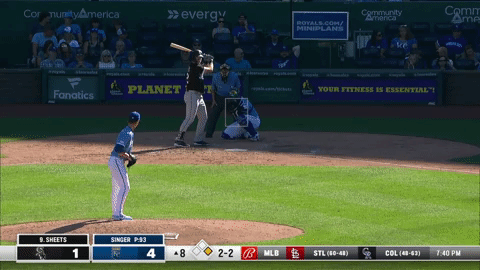
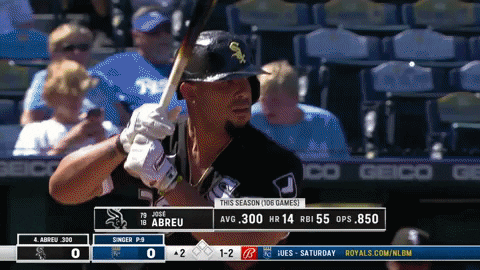
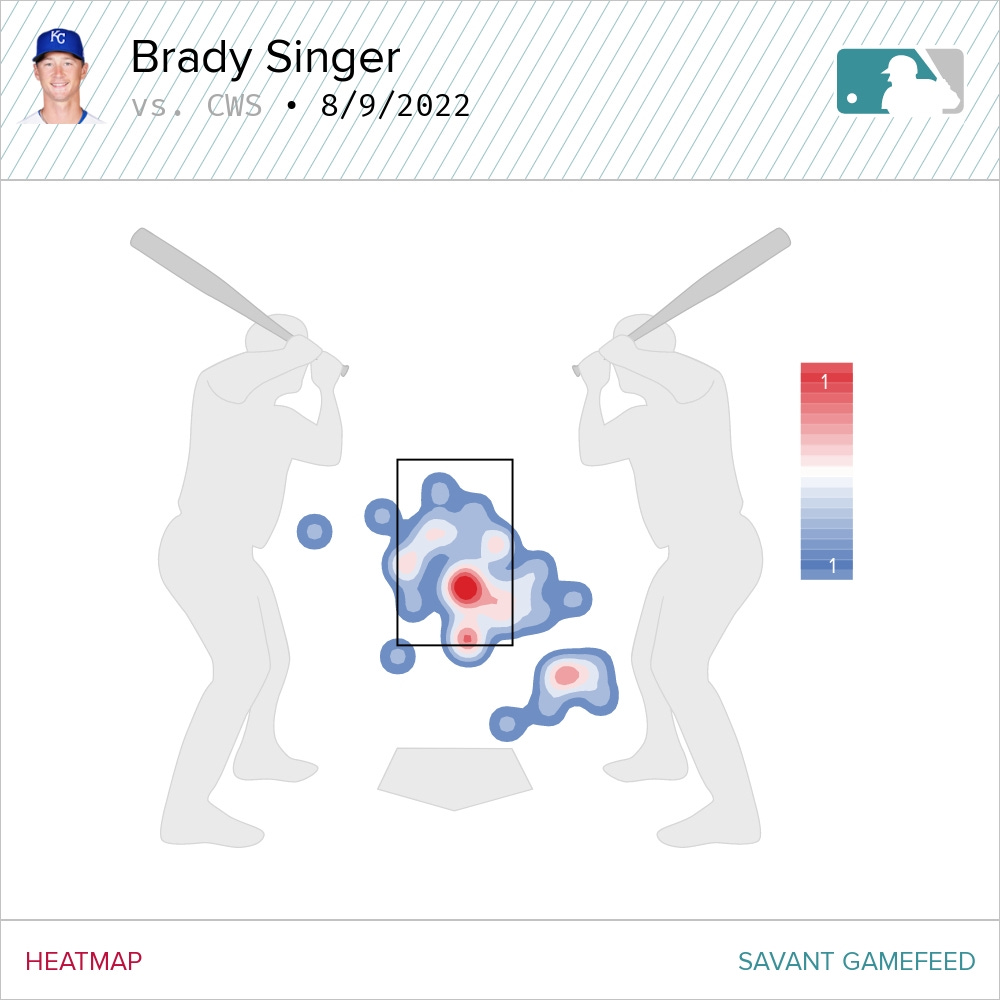
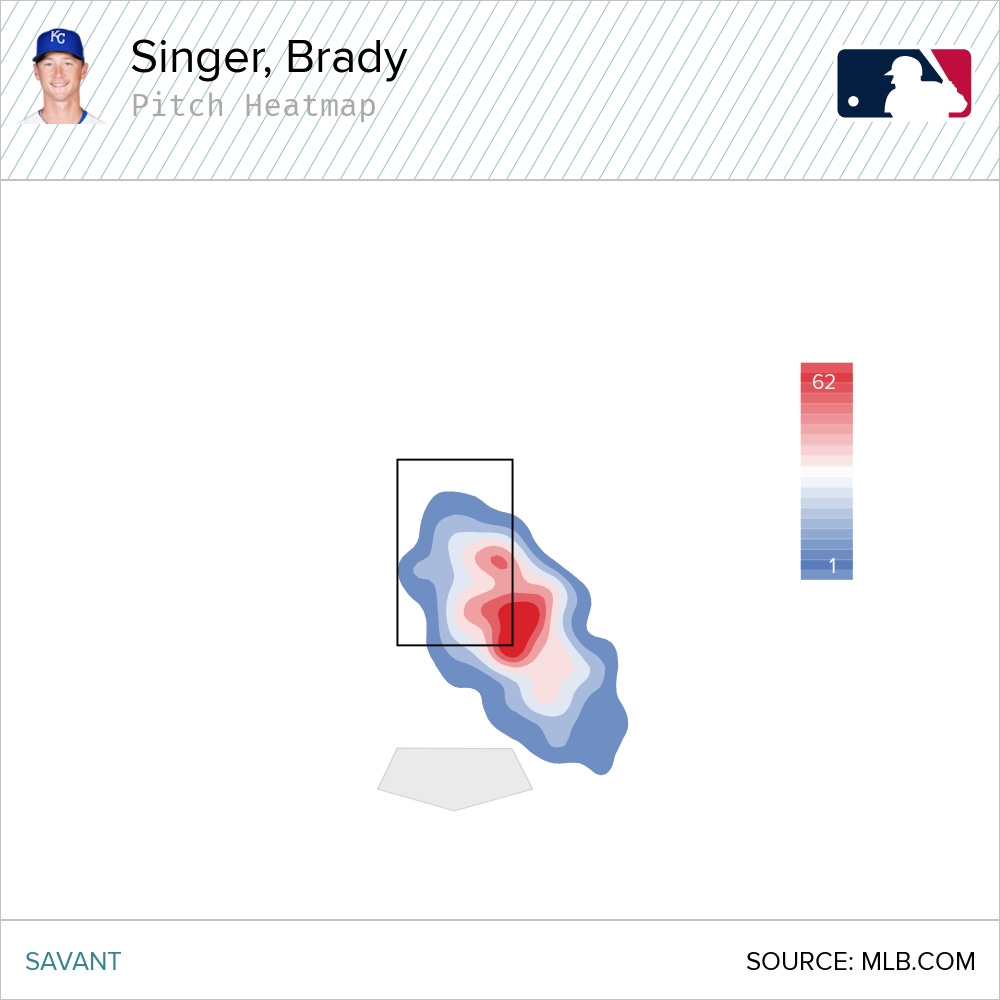

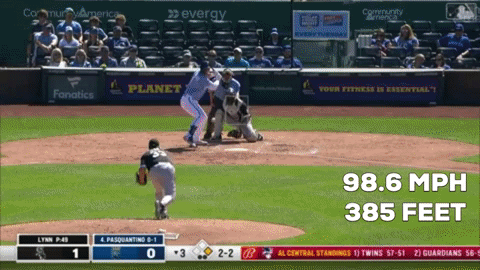
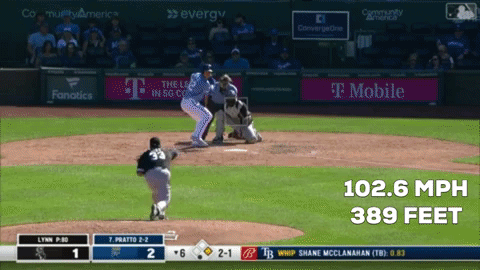
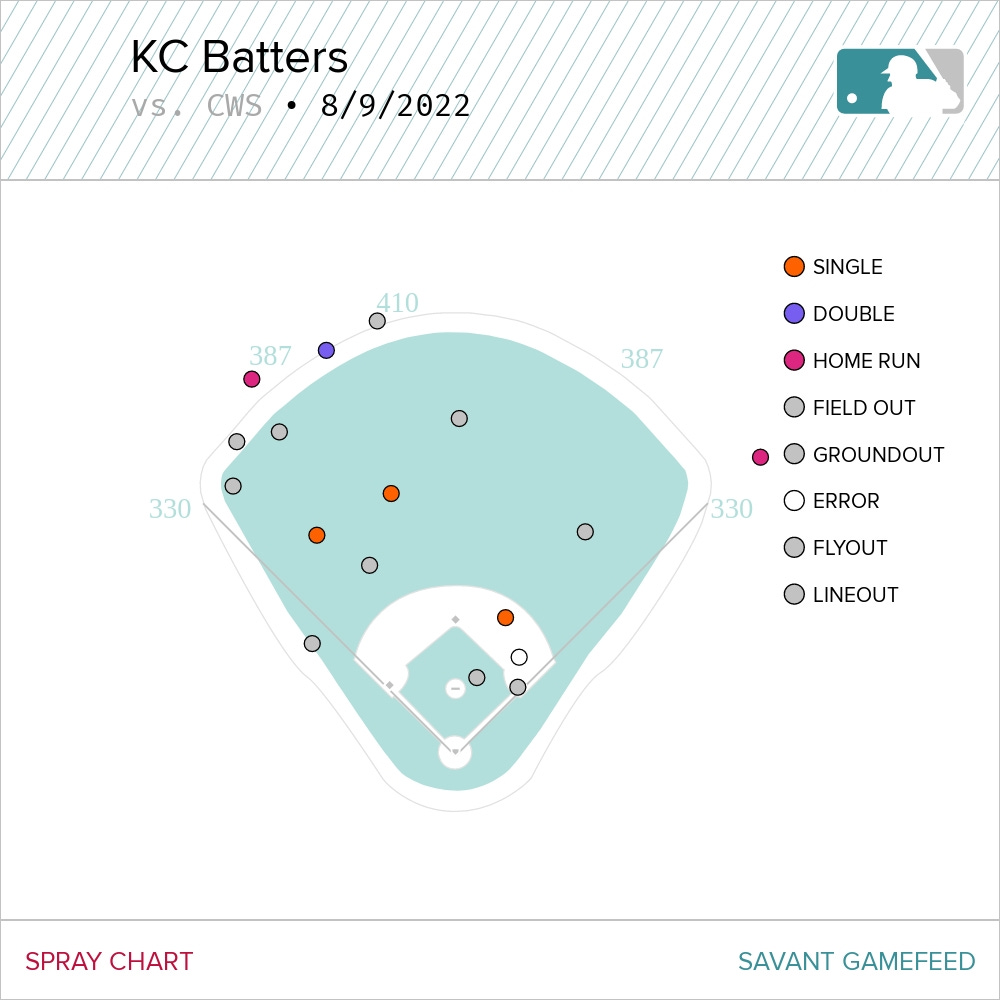
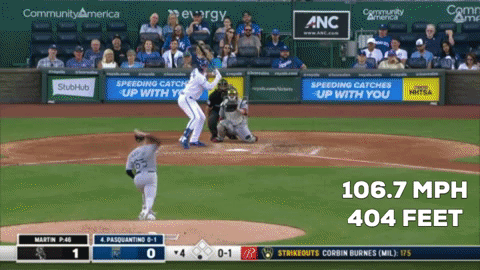
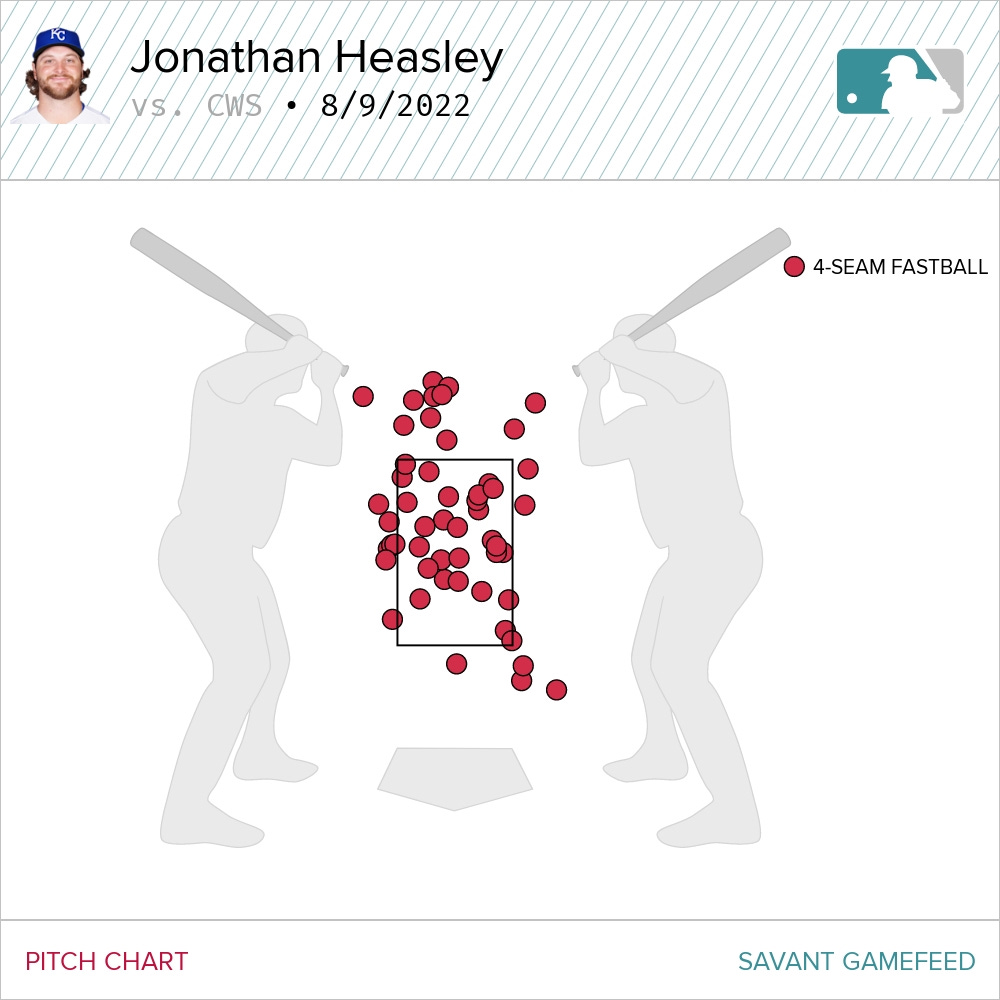
My favorite part about Vinnie being the third Royals rookie to homer in both games of a doubleheader is that it hadn't happened since 1969. Lou Piniella and Bob Oliver both did it that season. So it happened twice that year, then not again for 53 years. If I may quote Jayson Stark, "Baseball!"
Speaking of bizarre calls from broadcasters, I noticed a really "good" (i.e., bad) one over the weekend. Couldn't believe it. In the bottom of the 6th Saturday night, Hud solemnly informed us, "Man, what a pitchers duel we have here tonight!"
At the time, Lynch's game ERA was 6.00. Eovaldi's was 7.20. There had already been 4 HR's. Sometimes it's hard to believe that the man ever actually played the game. Both starters were out of the game after the 6th inning. A "pitchers duel"? Really????
God, it must have been annoying to have that guy as a teammate. The incessant mindless babbling day after day after day for endless months…whew! No thank you!